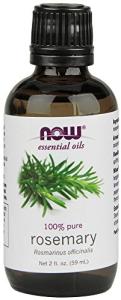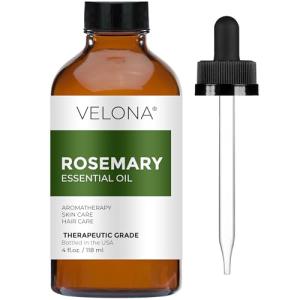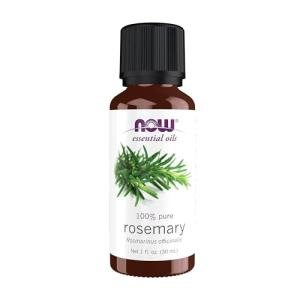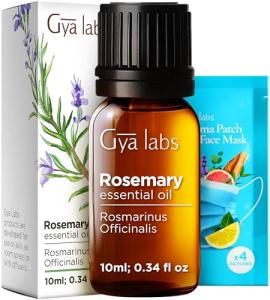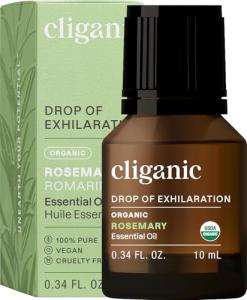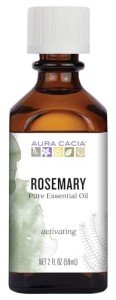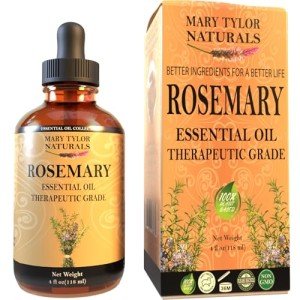What is Rosemary Essential Oil?
Rosemary essential oil is extracted through steam distillation from the leaves and flowering tops of the rosemary plant. Native to the Mediterranean region, rosemary has been historically prized not only for its culinary uses but also for its medicinal properties. The essential oil is known for its fresh, herbaceous scent, which is both uplifting and invigorating, making it a popular addition to aromatherapy blends and beauty products.
Rosemary essential oil is particularly valued in skincare and hair care for its ability to stimulate circulation, soothe inflammation, and fight off infections. It contains a variety of bioactive compounds that make it an excellent choice for promoting healthy, radiant skin and revitalizing hair.
Chemical Composition of Rosemary Essential Oil
The chemical composition of rosemary essential oil plays a crucial role in its therapeutic benefits. Some of the key compounds found in rosemary oil include:
-
1,8-Cineole (Eucalyptol) (15-50%): This compound gives rosemary oil its fresh, camphor-like aroma. 1,8-cineole has anti-inflammatory, antiseptic, and expectorant properties. It can help soothe irritated skin, clear the airways, and improve circulation, making it a key component in skincare and respiratory blends.
-
Alpha-Pinene (5-15%): Alpha-pinene is a terpene that has a pine-like fragrance and is known for its anti-inflammatory, analgesic, and antimicrobial effects. It helps to reduce skin irritation, support wound healing, and protect the skin from harmful microbes.
-
Camphor (5-10%): Camphor provides a cooling, slightly medicinal scent and offers analgesic and anti-inflammatory properties. It is used to calm itchy skin, alleviate muscle pain, and promote healthy skin circulation.
-
Rosmarinic Acid (1-3%): Rosmarinic acid is a potent antioxidant and anti-inflammatory compound that helps protect the skin from free radical damage, reduce inflammation, and soothe irritated skin.
-
Borneol (2-5%): Borneol has a fresh, minty scent and provides calming and anti-inflammatory effects. It helps reduce redness, promote healing, and enhance the circulation of blood to the skin.
-
Carnosic Acid (~1%): A potent antioxidant, carnosic acid helps neutralize free radicals that contribute to aging. It protects the skin from oxidative damage and promotes healthy skin cell regeneration.
Benefits of Rosemary Essential Oil in Handmade Soap
When added to handmade soap, rosemary essential oil offers numerous advantages for both the skin and overall sensory experience:
1. Stimulates Blood Circulation
Rosemary essential oil is well known for its ability to stimulate blood flow. When used in soap, it helps increase circulation to the skin, promoting healthy cell turnover and a radiant complexion. This circulation-boosting effect can be particularly beneficial in reducing puffiness and dark circles under the eyes.
2. Soothes Skin Irritation
With its anti-inflammatory and antimicrobial properties, rosemary essential oil helps soothe irritated or inflamed skin. It can be especially beneficial for conditions such as eczema, acne, and psoriasis, where inflammation is a key factor. Rosemary’s calming effects help reduce redness and discomfort while promoting skin healing.
3. Cleanses and Protects
Rosemary oil has natural antibacterial properties, making it a great addition to soaps designed for acne-prone or oily skin. It helps cleanse the skin without stripping it of its natural oils and reduces the appearance of blemishes by preventing the growth of acne-causing bacteria.
4. Anti-Aging Benefits
The antioxidants in rosemary essential oil, particularly rosmarinic acid and carnosic acid, help protect the skin from oxidative stress and premature aging. These compounds neutralize free radicals, which are responsible for the breakdown of collagen and elastin in the skin, leading to wrinkles and sagging.
5. Invigorates the Senses
The refreshing, herbal scent of rosemary essential oil is uplifting and energizing. When used in handmade soap, it provides a refreshing sensory experience that helps awaken the body and mind. Rosemary is often used in soaps designed for morning routines, as its invigorating aroma helps to promote focus and mental clarity.
Rosemary Essential Oil in Cosmetics
In cosmetics, rosemary essential oil offers a wealth of benefits for both skin and hair care. Its anti-inflammatory, antimicrobial, and antioxidant properties make it an essential ingredient in many beauty formulations.
1. Treats Oily and Acne-Prone Skin
Rosemary essential oil is highly effective for managing oily skin and acne. It helps to balance oil production, preventing excess sebum that could clog pores and lead to breakouts. Its antibacterial properties also reduce the risk of acne-causing bacteria, making it an excellent addition to facial cleansers, toners, and spot treatments.
2. Fights Wrinkles and Fine Lines
Thanks to its high levels of antioxidants, rosemary essential oil helps to protect the skin from environmental damage that accelerates the aging process. It helps promote collagen production and skin regeneration, making it an excellent choice for anti-aging skincare products.
3. Promotes Hair Growth and Scalp Health
Rosemary essential oil has long been used to stimulate hair growth and improve scalp health. It improves blood circulation to the scalp, which encourages hair follicles to produce stronger, healthier hair. Additionally, its antimicrobial properties help reduce dandruff and other scalp irritations. Rosemary oil is often found in shampoos, conditioners, and scalp treatments designed to improve hair thickness and overall health.
4. Alleviates Skin Conditions
The soothing properties of rosemary oil make it beneficial for treating skin conditions such as eczema and dermatitis. It can reduce inflammation, relieve itching, and support the skin’s healing process. When included in creams, lotions, or balms, it can offer relief from dry, cracked, or irritated skin.
5. Calms the Mind and Relieves Stress
Apart from its physical benefits, rosemary essential oil also has uplifting and calming effects on the mind. It is often used in aromatherapy for its ability to improve focus, memory, and mental clarity. Rosemary’s stimulating aroma is also said to reduce stress and anxiety, making it a great addition to facial mists, lotions, and body oils for both skincare and mood-enhancing benefits.
How to Use Rosemary Essential Oil in Handmade Soap and Cosmetics
In Handmade Soap
Rosemary essential oil can be added to both cold-process and melt-and-pour soaps. In cold-process soap, the typical usage rate is 0.5–1% of the total weight of oils in the recipe, depending on the desired strength of the fragrance. For melt-and-pour soap, the essential oil should be added after the soap base is melted, ensuring that the fragrance is evenly distributed.
Rosemary’s strong herbal scent makes it suitable for use in both facial and body soaps, especially for oily or acne-prone skin. It pairs well with other essential oils like lavender, peppermint, or citrus for a refreshing and invigorating blend.
In Cosmetics
When adding rosemary essential oil to cosmetic formulations, it is important to dilute it properly. A general guideline is to use 1–2% rosemary oil in facial creams and up to 3% in body lotions or hair care products. Rosemary oil blends well with other essential oils like thyme, lavender, or frankincense in anti-aging and skin-healing products.
For scalp treatments and hair oils, rosemary essential oil can be mixed with a carrier oil, such as jojoba or coconut oil, and massaged into the scalp to promote circulation and encourage hair growth.
How to Use Rosemary Essential Oil Safely
While rosemary essential oil is generally considered safe for topical use, it is important to dilute it properly with a carrier oil, such as coconut oil or jojoba oil, before applying it to the skin. Essential oils are potent and can cause skin irritation if used undiluted.
Pregnant women and those with delicate health conditions should consult with a healthcare professional before using essential oils. As with any essential oil, a patch test is recommended to check for potential skin reactions.
Conclusion
Rosemary essential oil is a powerful addition to handmade soap and cosmetics, offering a wide range of benefits for both skin and hair. Its natural antimicrobial, anti-inflammatory, and antioxidant properties make it a go-to ingredient for promoting healthy, radiant skin, while its circulation-boosting effects are particularly beneficial for stimulating hair growth and revitalizing the scalp. Whether you’re crafting a refreshing soap, an anti-aging serum, or a scalp treatment, rosemary essential oil provides natural solutions for your beauty needs, all while offering an invigorating herbal scent that uplifts the senses.
